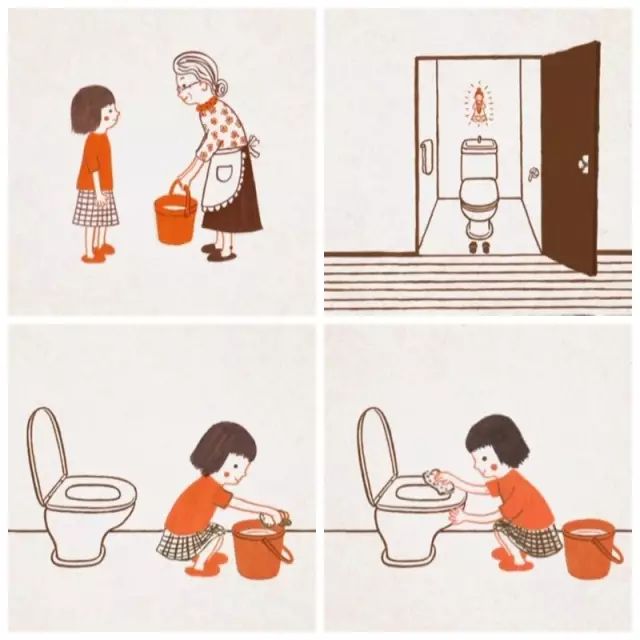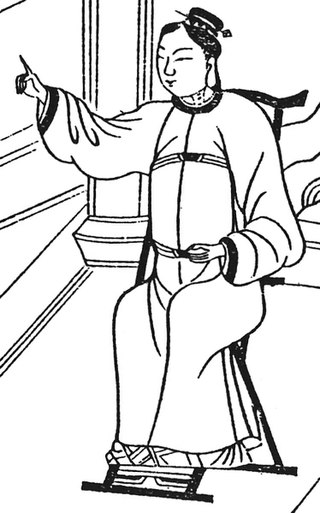A few weeks ago, I was watching a video on YouTube. It was about how the Japanese kept their railway platforms clean. Well, it is an indisputable fact that Japan is one of the cleanest nations on the planet. So, there I was, spending an afternoon following the daily routine of the cleaning staff at the Ueno Station in Tokyo’s Taito ward.
I would not bore you with the details but jump to the most fascinating scene that took me by surprise. It seemed almost like veneration as a cleaning staff knelt in front of a commode in a public restroom and cleaned it with hand. The man wore a pair of gloves, of course, but he knelt there, without a care in the world, absorbed in the act of cleaning the toilet bowl with a cloth. He used a small brush for the hard reaching corners, but mostly it was a cloth and cleaning solution in a spray bottle. In that very moment, it seemed as if it was his only material possession, like the alms bowl of a bhikkhu.
The visual stayed with me and will probably remain with me forever.
To be truthful, when the idea of writing this article crossed my mind, the initial thought that I had was that my readers would be grossed out. I put off the idea for some time but then realised that it was a necessary thing to talk about when in this country it’s taboo to discuss toilets. It’s ingrained in our society that the toilet is synonymous with filth. The notion, or even the mention of it, provokes revulsion. This may be the 21st century, and we might seem and act modern and open-minded, but the socio-cultural baggage that we carry cannot be shed overnight. For ages, toilets, and the very act of cleaning them, have been at the centre of a storm, dividing people and rendering a section of our own as ‘Untouchables’.
It was in South Africa, where this humble act of cleaning the toilet somehow facilitated the transformation of a certain Mohandas Gandhi into a Mahatma; even though it meant marital discord, as his wife, Kasturba Gandhi, was not to take his diktat so easily.
…I had begun to resent the foul directive that Mohandas had imposed on all the inhabitants of Beach Grove Villa. We had been ordered, not just to clean our own chamber pots every day, but also to extend this service to other residents whose pots had not been tended to or cleaned properly. Every morning I had to fight down a wave of revulsion at the loathsome chore he had forced upon us. I was nauseated as much with the thought of doing this reviling job with my own hands…. I felt humiliated. How dare he subject me to this vile torture?
All my life I had looked upon the cleaning of toilet pots as the lowliest of jobs; a task that condemned those who did it as subhumans, unfit to even reside inside the city limits where decent folks lived. I knew that even their shadows were unclean and deemed you ritually impure if they were to fall upon you. These wretched cleaners were allowed into our homes only in the thick of the night, so that no one set sight on their ill-omened faces while they went about their jobs of removing night soil from the homes of the upper castes. And now Mohandas tells me to defile myself and clean my own toilet and if need be, other’s toilets as well! How dare he?
An excerpt from The Secret Diary of Kasturba by Neelima Dalmia Adhar. It is a fictional diary based on facts.
If you ask me personally, I feel there cannot be a better way to test a person’s resolve and commitment towards serving the public than that employed by Gandhi. Anyone wishing to work with him at his ashram had to first prove himself by cleaning a toilet.
However, those were the days of chamber pots and night soils, not anywhere close to the times we live in now, where the commode is so advanced that it can practically do anything; from glowing in the dark to playing music, to automatically adjusting its seat, to analysing urine and stool and measuring vitals like blood pressure, body temperature and blood sugar.
Perhaps, there has been no one so obsessed with the innovations stated above other than the country in question—Japan.
In Japan, it’s a sacred duty to keep the toilet clean, for there is a saying, Toire wa sono ikka no kao, which translates to, ‘The restroom is the face of the household’. And the women of the household take up this mundane daily chore of keeping the toilet sparkling clean to pay their respects to the beautiful goddess presiding in there—Kawaya Kami.
It is believed that the women who kept the toilets clean would give birth to attractive children, boys with “high noses” and girls with “dimpled cheeks”, as Kawaya Kami is herself beautiful and has always been associated with good harvest and fertility.
Historically, cattle in Japan had always been scarce. And thus, in the past, human waste was collected in cesspits and used as fertilisers. So, the Japanese tradition of appeasing Kawaya Kami was not just to provide for a bountiful harvest but also to protect people from accidentally falling into those cesspits and drowning.
There are various traditions across Japan in order to please Kawaya Kami, like “benjo-biraki” or the opening of a new toilet, where the participants take turns to sit on the toilet bowl and eat rice cakes and sip green tea.
Thus, toilets in Japan are treated as shrines, decorated with fresh seasonal flowers and books, alongside potpourri, dried herbs, or ground coffee to absorb the unpleasant odours.
In contrast, an ill-kept toilet, unclean and filthy, would displease Kawaya Kami resulting in ugly, sad kids and poor harvests. And, if it is too disgusting, then Kawaya Kami may depart altogether, and the place could become a favourite of Akaname, a Japanese yokai, a repulsive red-faced, claw-footed, cropped hair kid-like beings, who sneak in at night and lick the filth and dirt sticking to the bathrooms and toilets with their long tongues.
I’m not entirely aware if there exists such a god or being amongst the diverse traditions across India, but Japan is not the only country to have such a custom. Korea also has a toilet god of its own, Cheukshin. In China, Zigu, also known as Maogu, is a spirit of a concubine who resides in bathrooms. Furthermore, the New Zealand Maoris have a lot of rituals concerning the toilet as human waste is considered the food of the dead. In ancient Rome, they had Goddess Claocina, the protectress of the Cloaca Maxima, which was the primary sewer of the city.






If you have enjoyed reading the above post, please consider buying a copy of my book. KNOW MORE





It was really surprising to know such a fact. I enjoyed reading.
Thank you for this beautiful piece of work.
Looking forward to more such writing.
Wish you all the best
Thank you, Sir… I’m glad you liked it. 😀
Loved reading your write-up, Sir. You have penned it so beautifully and that’s your unmistakable charm.
Thank you so much…😀